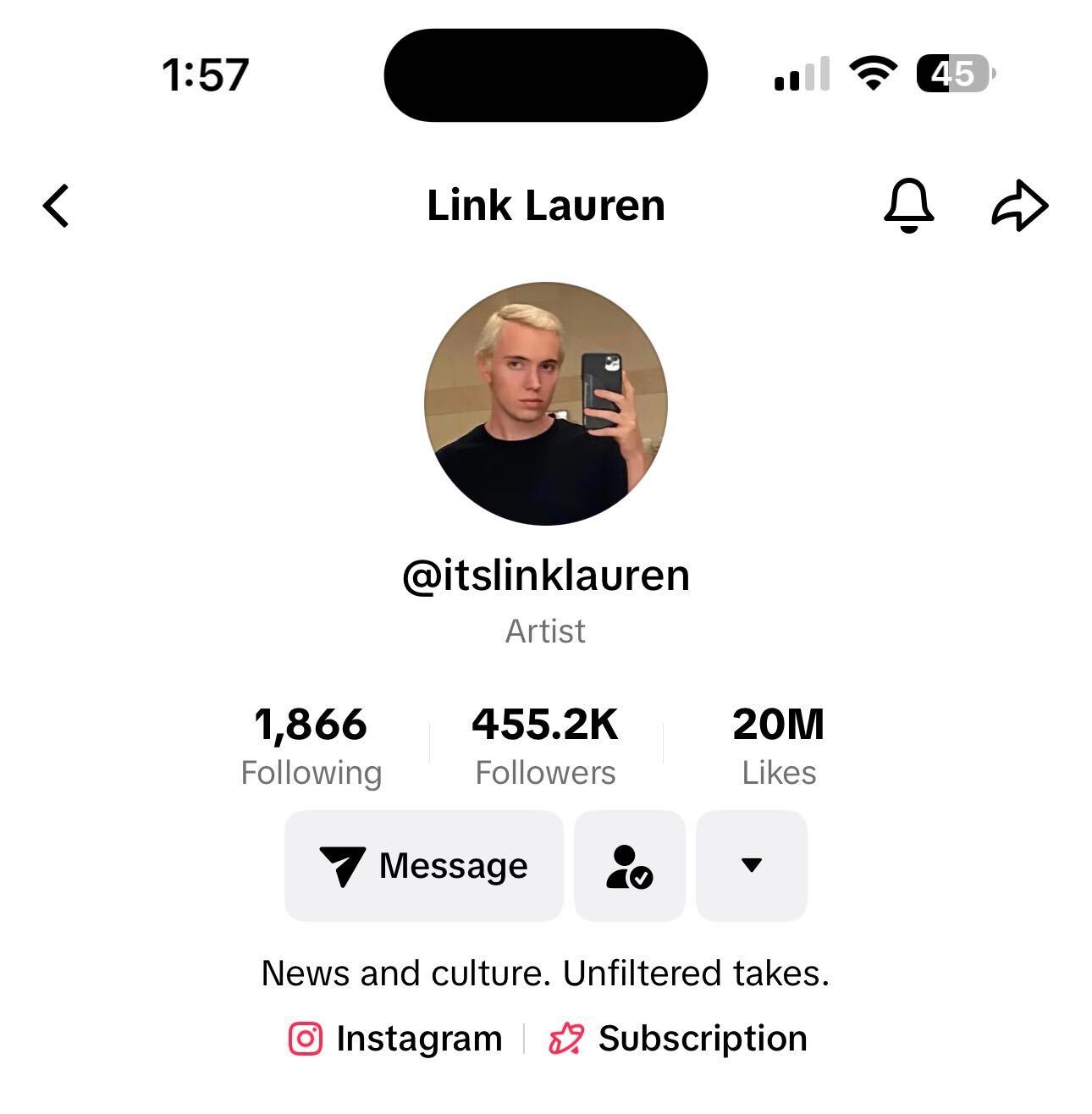Is RFK Jr’s TikTok Strategy Working?
Malinda Sanna
You may know LookLook for our luxury insights, but we also talk to hundreds of college students every year on a variety of topics, at both public and private institutions. Last week we conducted a study amongst 200 of them to investigate their sentiments around the upcoming presidential election.
College students are some of the most motivated voters, according to the Institute for Democracy and Higher Education. In the last presidential election, 66% of college students showed up to vote. Yet they are typically under-represented in political polls because they are hard to reach (and that’s our specialty).
The LookLook study was fielded April 10-12, 2024. In line with the college population, our panel leans 60/40 female/male. 50% identify as Democrats, 19% as Republicans, 17% as Independents.
Interestingly, 14% do not align with any party:
“My political preferences are very fluid, varying with the evolving landscape from period to period, so I don’t align consistently with one specific party.”
– Biswesh, No Party Affiliation, George Mason University
The study revealed that most respondents are unhappy with the two leading presidential candidates:
“I’m concerned over politicization, policies that are very far on either side of the spectrum, slandering and immaturity shown by many candidates. Weary of the constant fighting, name-calling, inability to compromise. Anxious because none of the realistic options for this election are good and no third-party candidate has a legitimate chance, so the result will be bad regardless of who wins.”
– Meredith, Republican, Arizona State U
They are also largely undecided. Only one in four “definitely” knows who they will vote for.
And this is where it’s so powerful to use hybrid qual/quant instead of standard survey polling. We specialize in this hybrid approach because we can capture nuances that explain reasons behind the responses. In this study, we not only asked who they are considering voting for, but also open-ended questions, such as how they are feeling, and why they lean towards a certain candidate.
Surprisingly, 1 in 2 (53%) “definitely” or “may” vote for RFK Jr, vs. 58% for Biden and only 32% for Trump. RFK Jr. appears to be connecting with young people.
In particular, they cite RFK Jr’s marketing as what is getting their attention:
“I have seen some ads and RFK Jr seems like he has good values.”
– Hannah, Republican, U of NH
“His campaign is more known on TikTok. He discusses things that I want to hear about and I want a different person in power.”
– Momoreoluwa, Democrat, Quinnipiac University
“RFK Jr has reached out to the younger generation which I find admirable and seems to care about our opinion.”
– Anthony, No Party Affiliation, Florida Southern University
“He is the only person I’ve seen so far advertising to my demographic on TikTok though which is new.”
– Alexis, Democrat, University of Vermont
“He speaks freely on controversial subjects and is not afraid of the truth even if it hurts. I enjoy his marketing campaign and I feel the most similar to him.”
– Colin, Independent, University of Vermont
Currently, RFK Jr. has 1.9M followers on TikTok while Biden has 293K (Trump is not currently on TikTok).
In addition, RFK JR.’s campaign hired the Influencer Link Lauren, a 25 year old recent NYU graduate, to serve as an advisor. Lauren is a TikTok Influencer with nearly half a million followers. He tends to emphasize the broadest points of RFK Jr’s appeal (ie addressing the border and lowering inflation) and downplays his controversial views. As cited in The Washington Post, “Kennedy has long faced condemnation for spreading falsehoods about the safety of vaccines — claims debunked by leading health and science organizations and ones that Lauren does not amplify.”
The feelings that students shared, in their own words, about how they feel regarding the election, also provides some clues as to the appeal of RFK Jr. among this group:
Leaning Biden (58%): mostly negative and anxious
The majority in our sample fall into this group. They are predominantly feeling negative, using words like “nervous,” “anxious” and “worried”. They are the most likely to speak of choosing the lesser of two evils. Those with positive things to say about Biden are likely to cite his support of reproductive freedom, his student loan forgiveness initiatives, LGBTQ rights, and respect for his experience.
Leaning Trump (32%): split equally between “hopeful” and “worried”
Those who feel positive use adjectives such as “curious,” “hopeful,” but also “concerned” and “worried.” They are leaning towards Trump because he “gets things done,” his border policies, and they cite a much stronger economy when he was president. However, he has the least support amongst college students and there are Republicans who refuse to vote for him (these tend to be female).
Leaning RFK Jr (53%): “excited” but “frustrated”
The students who are leaning towards RFK Jr. show the most excitement about the election. Many are drawn to RFK Jr. because of his record as an environmentalist. Some just want to register a protest against the two leading candidates. They are also the most frustrated with the two-party system. Several resent not having ranked choice voting, and would be much more likely to choose Stein, West or RFK Jr if this were an option. But as noted above, most interesting is how many students mentioned how they feel he is speaking to them:
“I like that RFK Jr’s policies reflect the issues facing people in my age group, such as the housing crisis. I also enjoy his policies on environmental protection. I work in a state park and protecting the environment is very important to me and a critical issue for our future. He has moderate views, and seems the most professional.”
– Kelly, Independent, SUNY Delhi
Sidenote: there is also a fascinating gender split amongst college students when it comes to the motivating issues. Reproductive rights is by far the most important issue amongst women, whereas amongst men it ranks below climate change, racial injustice, the national debt, national security, and crime reduction. Amongst men, a healthy economy is the number one top of mind issue that will drive their choice of presidential candidate. This gender divergence may become the subject of our next study.


This group of young Americans has little patience for the status quo, and they are not easily categorized. Candidates today should tune into this important and engaged demographic and pay attention to how they are consuming media. Millions of them have not yet made up their mind.
For more information on this latest study, or to request your own, please reach out to us at info@looklook.app.



